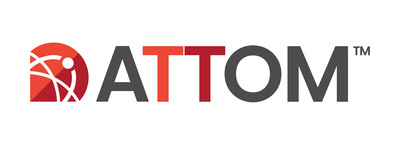When ERP Becomes a Compulsion: Recognizing the Signs and Benefits for Growing Businesses
In the contemporary business world, Enterprise Resource Planning (ERP) systems are transforming from mere tools into essential components for operational success.

As companies expand and evolve, they face numerous challenges that can only be addressed through effective system integration. So, when does ERP transition from a choice to a necessity? Let's explore the key indicators that signal this shift and the benefits that accompany ERP adoption.
Managing Complex Operations and Data Fragmentation
As organizations grow, handling multiple departments such as finance, operations, and customer service can become overwhelming. If your team relies on separate software solutions for each function, it can lead to data fragmentation. ERP’s like NetSuite partners, provide solutions that are designed to consolidate these functions into a unified platform, ensuring smoother communication and streamlined operations.
The Need for Real-Time Insights
In a fast-paced market, having real-time data is crucial for effective decision-making. Without an integrated system, businesses may find themselves making choices based on outdated information. ERP solutions provide instant access to analytics and reporting tools, enabling leaders to make informed decisions quickly and confidently.
Overcoming Inefficient Manual Processes
Organizations that depend heavily on manual operations—such as data entry or report generation—often suffer from inefficiencies and increased errors. Implementing an ERP system automates these tedious tasks, freeing up valuable time and resources for employees to focus on strategic initiatives rather than routine activities.
Addressing Scalability Challenges
As your business expands, your existing software may struggle to keep up with increasing demands. This struggle can manifest in slow response times, limited capabilities, and frustration among staff. ERP systems are built to scale alongside your business, allowing you to add new users and features as necessary without losing performance.
Meeting Compliance and Regulatory Standards
Many industries face stringent regulatory requirements that necessitate careful compliance management. Relying on manual processes can lead to errors and potential penalties. ERP systems help ensure compliance by automating regulatory reporting and providing audit trails, simplifying the complex landscape of compliance management.
Enhancing Customer Expectations
Modern consumers demand quick and efficient service. If your current systems make it difficult to meet these demands, you may need to consider an ERP solution. By providing end-to-end visibility into your operations, ERP systems enable you to respond more effectively to customer inquiries and fulfill orders promptly.
Improving Inventory and Supply Chain Management
Managing inventory and supply chains becomes increasingly complex with growth. Ineffective tracking can lead to lost sales due to stockouts or excess inventory costs. An ERP system centralizes inventory management, optimizing stock levels and improving supplier relationships to enhance overall efficiency.
Key Benefits of Implementing ERP Systems
- Unified Data Management: All departments can access shared, real-time data, fostering collaboration and reducing the risk of inconsistencies.
- Automation of Routine Tasks: Streamlining processes such as invoicing and payroll, allowing employees to concentrate on higher-value activities.
- Scalability and Flexibility: ERP systems are designed to grow with your business, accommodating new requirements effortlessly.
- Informed Decision-Making: With comprehensive data analytics at your fingertips, organizations can adapt swiftly to market changes and internal needs.
- Simplified Compliance: Automating compliance processes helps businesses adhere to industry regulations efficiently.
Conclusion: Recognizing ERP as an Essential Investment
If your organization is grappling with inefficiencies, disconnected systems, or growth challenges, implementing an ERP system is likely no longer optional. It’s an essential step towards improving operational efficiency, enhancing customer satisfaction, and positioning your business for future success. As you navigate this critical decision, consider the transformative potential that ERP solutions can offer.
By recognizing these signs early on, businesses can ensure they implement ERP effectively, paving the way for sustainable growth and a competitive edge in an ever-changing marketplace.


 epiqinfotech
epiqinfotech 















/cdn.vox-cdn.com/uploads/chorus_asset/file/25115065/DCD_Avishai_Abrahami.jpg)








